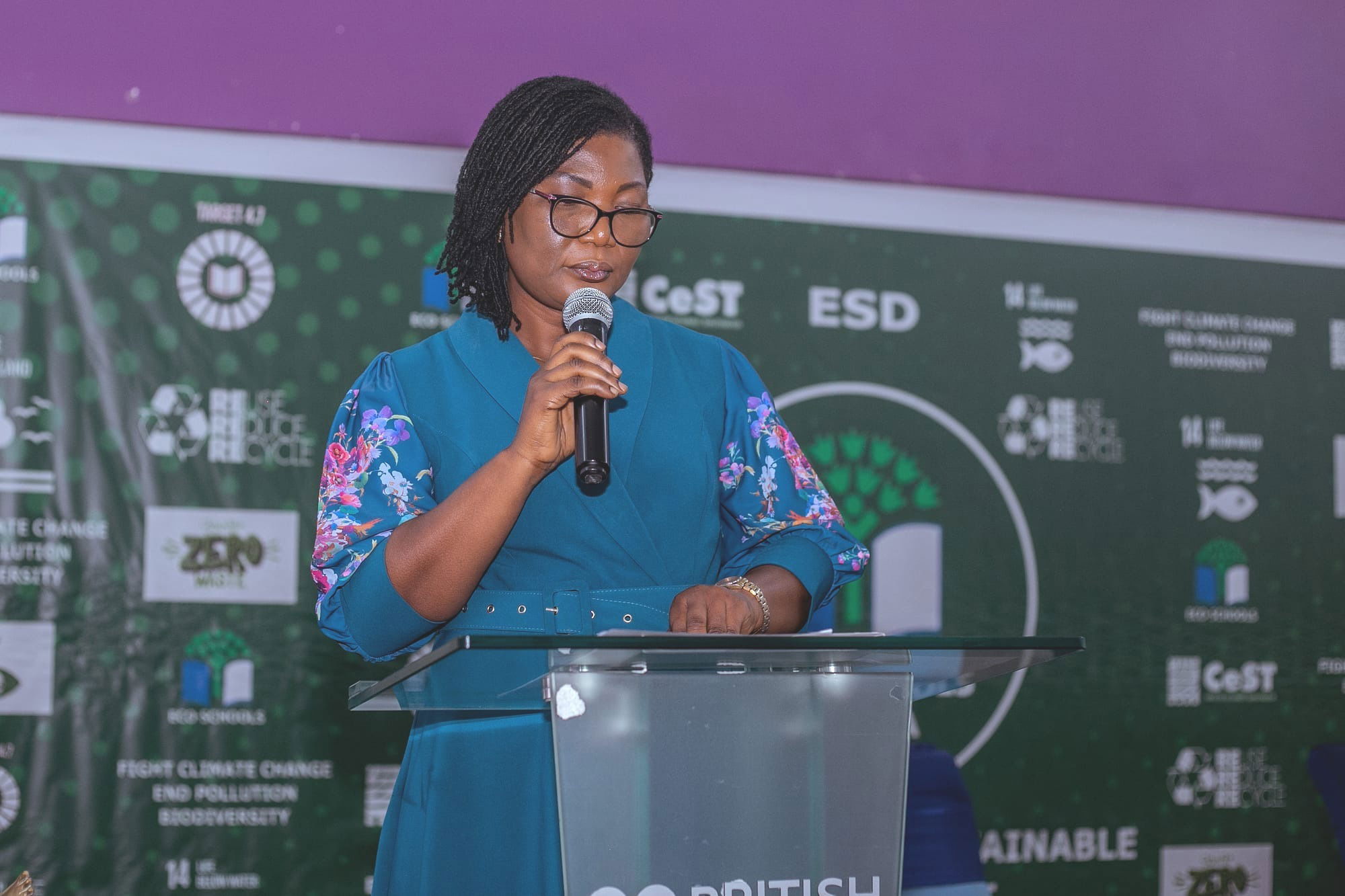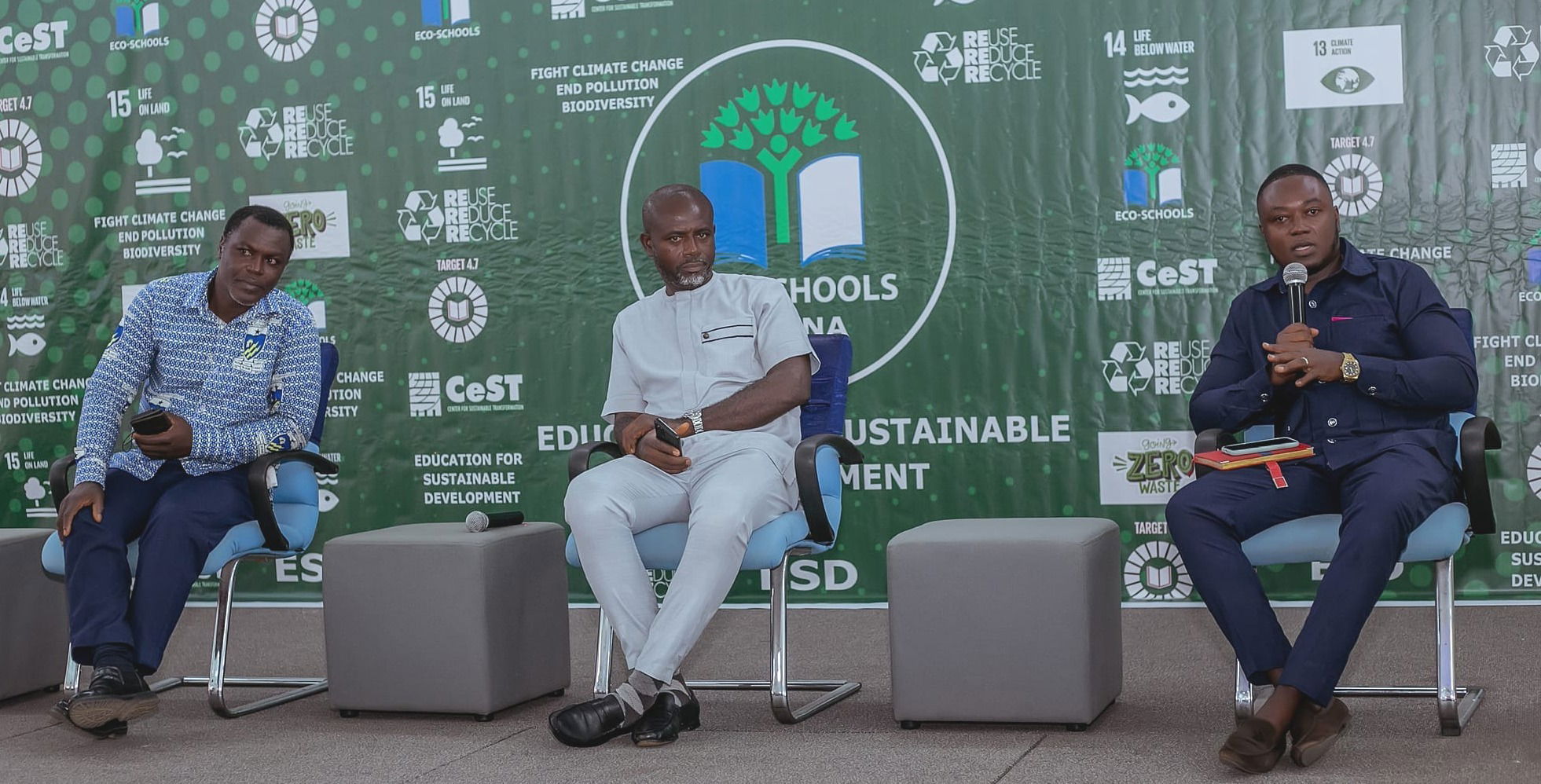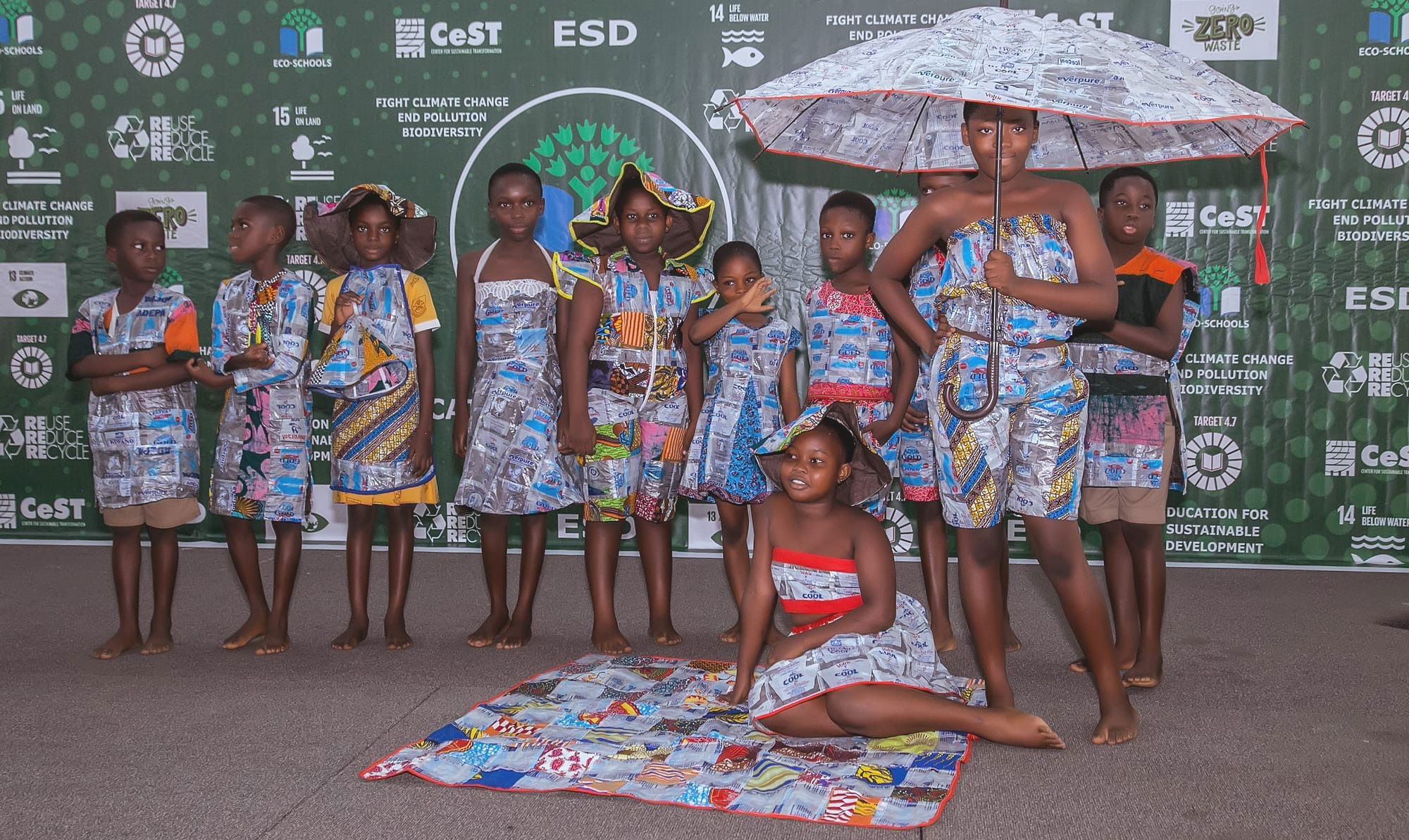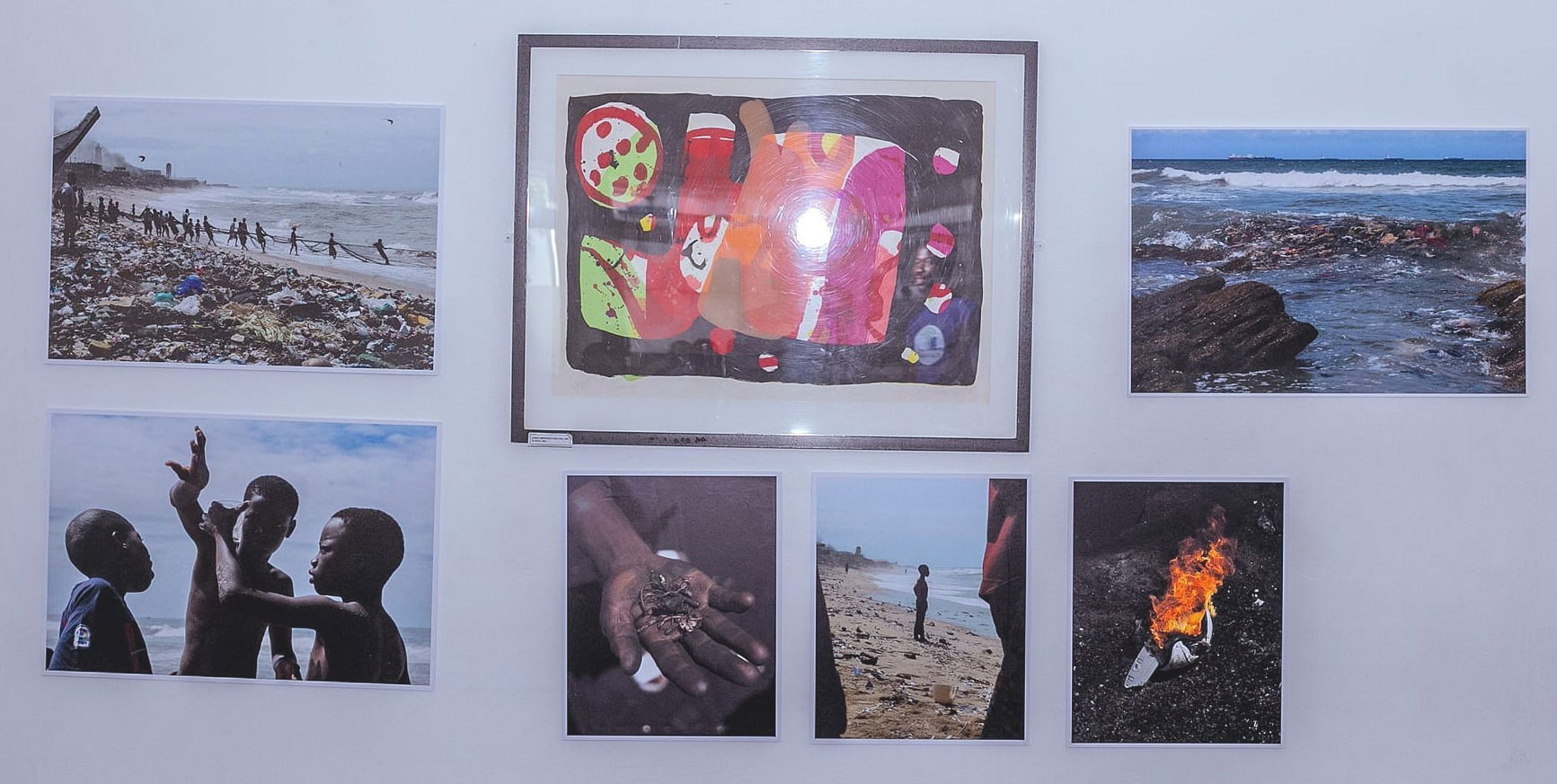
By Emmanuel Akumun, National Operator, Eco-Schools Ghana
Background of the Program
On Wednesday, 22nd January 2025, Eco-Schools Ghana commemorated a decade of promoting Education for Sustainable Development (ESD) themed Celebrating 10 years of ESD with Eco-Schools Ghana: Where do we go from here? at the British Council Ghana. Formally recognized as a member in 2014, Eco-Schools Ghana is a part of the global Eco-Schools initiative launched in 1994 by the Foundation for Environmental Education (FEE). The program, which empowers schools to incorporate sustainability into their curricula and operations, had already been introduced in Ghana by Hilde Opoku, the founder of CeST, ten years earlier through an exchange program between Akosombo International School and Byåsen School in Norway. Over the years, it has grown into a transformative force in education, fostering environmentally conscious practices in schools nationwide.
Eco-Schools: A Proven Model for ESD
Education for Sustainable Development (ESD) has become a critical global priority in addressing the complex environmental, social, and economic challenges of the 21st century. At the heart of this agenda is the need to equip learners with the knowledge, skills, values, and attitudes to act for sustainable development now and in their future endeavors. Eco-Schools, operated solely in Ghana by the Centre for Sustainable Transformation have proven their capacity by standing the test of time. Through structured methodologies and action-based learning, this program offers replicable models for embedding sustainability into education systems worldwide, aligning with UNESCO’s ESD framework and the more specific Greening Education Partnership (GEP). The latter launched to address the pressing need for integrating climate education into all levels of learning. Prof. Benedicta Y. Fosu-Mensah’s keynote address at the conference echoed these sentiments, emphasizing the transformative power of ESD. She stated, "Education must transcend the traditional boundaries of teaching facts and figures and prepare individuals to become active participants in creating a sustainable world."

Prof. Benedicta Y. Fosu-Mensah, Institute for Environment & Sanitation Studies, University of Ghana
Prof. Fosu-Mensah further challenged participants to imagine a generation equipped not only to understand climate change but also to innovate solutions. "Sustainability must be woven into the fabric of curricula at all levels," she urged, advocating for inclusivity and recognizing indigenous knowledge systems as vital components of sustainable education. She commended the work with Eco-Schools in Ghana. The Eco-Schools program is the world's largest sustainable schools program, active in more than 101 countries. Its primary goal is to provide schools with a framework to foster environmental responsibility and integrate sustainability into their operations and curricula. Central to the program is its seven-step methodology: (1) Forming an Eco-Committee (2) Conducting an Environmental Review (3) Developing an Action Plan (4) Monitoring and Evaluating (5) Curriculum Integration (6) Informing and Involving and (7) Creating an Eco-Code.
Through its systematic approaches, CeST has been empowering students to take ownership of sustainability initiatives, transforming schools into learning labs for sustainable practices. As we embark on another decade of doing this, we look forward to leveling up and partnering with relevant stakeholders and partners for a nationwide introduction of the program, which has a proven model for delivering on the ESD agenda, to more schools.
Reflecting on Panel Discussions from the Conference
The event featured interactive panel discussions addressing the integration of ESD into school curricula, financing ESD initiatives, and mobilizing stakeholders for project-based learning. Panelists comprising educators, school administrators, and the Ghana Recycling Initiated by Private Enterprise (GRIPE) emphasized the importance of aligning Ghana’s education policies with global sustainability goals and the need for public-private partnerships to fund innovative projects. Discussions also highlighted the urgency of engaging local communities to foster a sense of ownership in sustainability initiatives. Moving forward, the panelists called for increased advocacy and collaboration to ensure sustainability becomes a cornerstone of Ghana’s educational system.

(L-R): Jerome Doosogla, AIS, Kwesi Boahene-Acheampong, ATTC & Sedem Cadeau, St. K Michaels
Our Partners and Teachers
The event also brought together key partners who have over the years supported Eco-Schools Ghana. Fidelity Bank Ghana, collaborators on the Fidelity Orange-Impact Project, reaffirmed their commitment to advancing sustainability in education. Trashy Bags Africa, a long-term partner, generously rewarded winners of the Young Reporters for the Environment competition with eco-friendly products, and the Ministry of Environment, Science, Technology and Innovation (MESTI) with whom we are piloting the Plastic-Free School Program (PFS) in close collaboration. Special recognition was given to pioneer teachers from Akosombo International School, including Headmistress Sarah Adei, Mr. Jerome Doosogla, Madam Margaret Ayenor, and former administrator of the AIS schools, Mr. Thomas Ameyaw whose contributions laid the foundation for the program’s success.
Fashion Walk by Students
Students from St. John Bosco Basic School, Tema, showcased their creativity and environmental consciousness in a vibrant fashion walk, adorned in outfits, bags, caps, aprons, and umbrellas made from sachet water bags and other upcycled materials, highlighting the importance of reducing waste and embracing sustainable practices. St. John Bosco students were also celebrated as winners of the Eco-Schools Ghana @10 Environmental Quiz competition, excelling in themes such as the Sustainable Development Goals (SDGs), climate change, and waste management.

St. John Bosco Students during their fashion walk at the Conference
Photo Art Exhibition on the Impact of Waste Colonialism on the Global South by the Global North - by Alexander Nerlier
A highlight of the event was an evocative art exhibition by Alexander Nerlier, an artist-in-residence at CeST and a photographer from the Norwegian School of Photography, also a former Eco-Schools student in Norway. Nerlier’s work, created during his Artist residency at CeST in 2023 and 2025, explores the impact of waste colonialism on the global South. His striking images provided a visual narrative of how waste generated in developed nations disproportionately affects vulnerable communities in developing regions, inspiring attendees to reflect on the interconnectedness of global waste management issues. He curated the exhibition with CeST’s founder Hilde Opoku, who has over the years researched facts relevant to the pictures' storytelling dimension. Nerlier will be touring this exhibit in 2025.

Some of Alexander Nerlier's photos at the exhibition
Eco-Schools Ghana @10 Quiz Competition
The Environmental Quiz competition was another key feature of the event. Hosted by Kwesi Boahene-Acheampong, the 2024 FEE Teacher Award winner from Accra Technical Training Centre, the competition engaged students from Akosombo International School, St. K Michaels School Nii Boi Town, and St. John Bosco Basic School. The competition showcased the students’ depth of knowledge and commitment to addressing global environmental challenges.

Akosombo International School, St. K Michael & St. John Bosco School during the quiz competition
Music Performance by Theresa Elise
Celebrated Norwegian-Ghanaian soul artist Theresa Elise, a pioneer student of the Eco-Schools Ghana program and a member of the Norwegian/Ghanaian/Ethiopian duo Naarth, graced the event with a captivating musical performance. Her music, infused with themes of identity, and heritage, struck a chord with the audience, emphasizing the transformative power of art in advocating for sustainable development.

Theresa Elise performing at the Conference
Conclusion
The Eco-Schools Ghana 10th-anniversary conference on ESD was a testament to the program’s profound impact on environmental education and sustainability in Ghana. Though challenges such as limited funding, inadequate teacher training, and insufficient infrastructure persist, from engaging discussions and artistic expressions to partnerships and student-led initiatives, the event demonstrated the importance of collective action in fostering a greener future. As Eco-Schools Ghana enters its second decade, the world faces mounting environmental and social challenges, and its relevance in delivering ESD cannot be overstated. Scaling up their reach and impact will be critical to achieving the global sustainability goals outlined in the 2030 Agenda for Sustainable Development. We remain poised to continue shaping environmentally responsible citizens and promoting sustainable development nationwide.